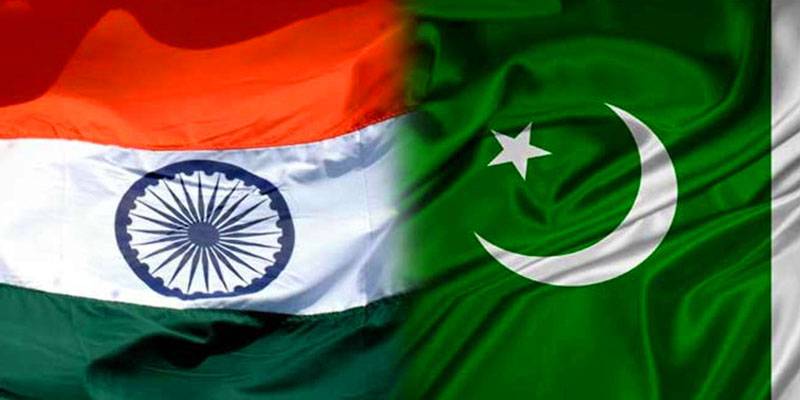
By Justice Markandey Katju, former Judge, Supreme Court of India, Amile Gulzar, Advocate, Lahore , Pakistan, and Dr Salfiyah Shamim, a young Kashmiri doctor in Srinagar
The corona virus has recently witnessed a spike in cases in a densely populated South Asia region, mainly India and Pakistan. It has emerged as a non-traditional security threat, which is common to the nuclear archrivals. This provides an opportunity for both the countries to tackle this threat by having a joint and co-operative approach. This would help save more number of lives in this region due to conflicts since 1947. The question is whether this is possible? We submit that it is possible and present our view.
The world has applauded the efforts of Prime Minister, Imran Khan, in tackling the threat in an effective way. Pakistan’s smart lockdown strategy instead of following a full lockdown or curfew, as enforced in India, has proved to be effective. It has not only helped in reducing number of corona cases, but also avoided the crash of the economy. One must appreciate the Government of Pakistan for offering help to India to overcome the coronavirus by sharing its successful cash transfer programme. Unfortunately, the Indian government declined the offer. Had there been a better co-operation and understanding, India would have also benefited from Pakistan’ s successful efforts in tackling this threat.
There has been shortage of ventilators in both, India and Pakistan. As per the figures, there are only 48,000 ventilators for 1.3 billion Indian population and only 1650 ventilators for 200 million Pakistan’s population.
The corona virus has recently witnessed a spike in cases in a densely populated South Asia region, mainly India and Pakistan. It has emerged as a non-traditional security threat, which is common to the nuclear archrivals. This provides an opportunity for both the countries to tackle this threat by having a joint and co-operative approach. This would help save more number of lives in this region due to conflicts since 1947. The question is whether this is possible? We submit that it is possible and present our view.
The world has applauded the efforts of Prime Minister, Imran Khan, in tackling the threat in an effective way. Pakistan’s smart lockdown strategy instead of following a full lockdown or curfew, as enforced in India, has proved to be effective. It has not only helped in reducing number of corona cases, but also avoided the crash of the economy. One must appreciate the Government of Pakistan for offering help to India to overcome the coronavirus by sharing its successful cash transfer programme. Unfortunately, the Indian government declined the offer. Had there been a better co-operation and understanding, India would have also benefited from Pakistan’ s successful efforts in tackling this threat.
Both, India and Pakistan, have very good scientists and medical experts, many of whom who are working in USA and Europe. For instance, India has several scientists specialised in this field, and Pakistan has experts like, SAPM Dr Zafar Mirza, who has a long-standing experience of working at national, regional and global levels in the health sector.
In our opinion the governments of both the countries should set up a joint team of such experts and scientists having expertise in pandemics to do research on a war footing to find out a vaccine/medicine for Covid-19. This team should be given adequate funds and other facilities for their work by both governments.
It must be emphasised that the problem is scientific, and can therefore only be resolved by scientists, not politicians, judges or administrators. Science is international, not national. Therefore a joint team of scientists of India, Pakistan, and also some other countries should immediately be formed for this purpose. Private entrepreneurs like Kiran Mazumdar Shaw, head of Biocon, should also be included in this team.
There has been shortage of ventilators in both, India and Pakistan. As per the figures, there are only 48,000 ventilators for 1.3 billion Indian population and only 1650 ventilators for 200 million Pakistan’s population.
This is an alarming situation for which both the countries can work together to overcome this hurdle. It has been a great success for Pakistan’s Ministry of Science and Technology in announcing the production of local ventilators. India has given licences to 3 firms to manufacture ventilators.
The relevant ministries of both countries should assist and facilitate each other in overcoming such shortages, at this hour of need.
This non-traditional security threat is not limited to any specific nation, religion, caste or creed. The leadership of both the countries should let go their egos and traditional rivalries, and try to overcome this crisis as a united front on humanitarian grounds. This would not only help foster better relations between India and Pakistan, but also bring regional peace and stability.
This non-traditional security threat is not limited to any specific nation, religion, caste or creed. The leadership of both the countries should let go their egos and traditional rivalries, and try to overcome this crisis as a united front on humanitarian grounds. This would not only help foster better relations between India and Pakistan, but also bring regional peace and stability.
